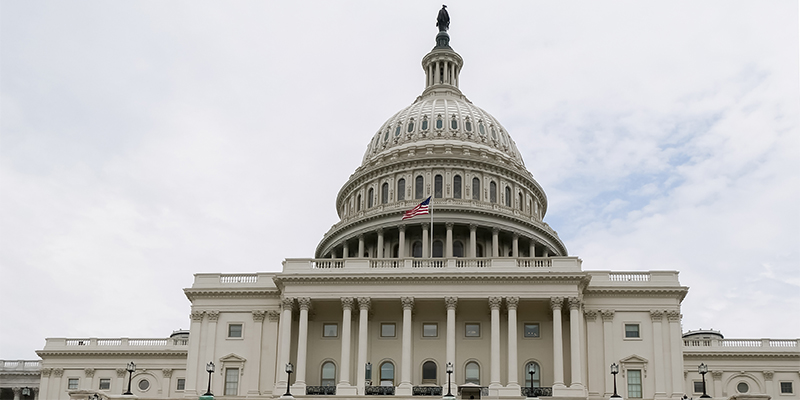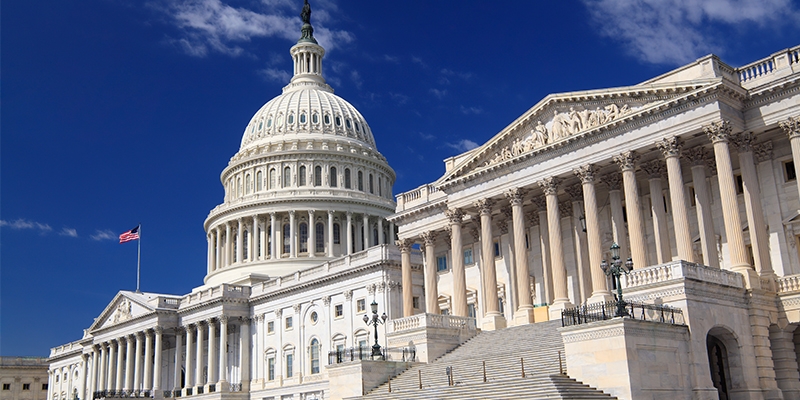By Eric Schmutz
At CRE.Converge in Toronto, NAIOP’s Senior Director of Federal Affairs Eric Schmutz dove into the latest federal legislation impacting the commercial real estate industry.
The session centered on a major win for the commercial real estate industry: the One Big Beautiful Bill Act signed this summer. The legislation makes several important provisions permanent while introducing new incentives designed to support investment, development and economic growth.
Among the tax incentives and extensions included in the bill:
- Bonus Depreciation: Starting Jan. 20, 2025, businesses can permanently expense 100% of costs for equipment, machinery, leasehold and nonresidential interior improvements.
- Section 199A Deduction: The 20% deduction for pass-through business income is now permanent, benefiting millions of small businesses and real estate partnerships.
- Business Interest Deduction: The EBITDA (Earnings Before Interest, Taxes, Depreciation, and Amortization)-based limit under Section 163(j) is permanently extended, supporting full expensing for leasehold improvements.
- Opportunity Zones: Opportunity zone tax incentives are now permanent, with added benefits for rural zones.
- Low-income Housing Tax Credit: States receive a 12% increase in LIHTC allocations, and bond financing requirements are reduced.
- New Markets Tax Credit: Permanently extended to support investments in underserved communities.
- Factory Expensing: A temporary 4-year 100% expensing benefit for new owner-occupied factories, starting in 2025.
- State and Local Taxes (SALT): The deduction cap increases to $40,000 in 2025, with inflation adjustments through 2029.
Schmutz noted that by working with other real estate industry associations, three proposed provisions which would have been costly to CRE were kept out of the bill:
- Business SALT Deduction: Full deductibility was preserved, avoiding proposed eliminations.
- Carried Interest: Existing partnership tax laws remain unchanged, preserving capital gains treatment for risk-takers.
- Foreign Investment Protections: Retaliatory tax measures (Section 899) were dropped, maintaining a favorable climate for foreign investment in U.S. real estate.
Schmutz also summarized the clean energy incentives set to expire under the new law, including:
- Section 48E: Wind and solar projects must begin construction within 12 months of enactment and be in service by 2027.
- Section 179D: Energy-efficient commercial building projects must start by June 30, 2026.
Looking ahead, Schmutz emphasized that NAIOP will continue pushing for additional priorities. Chief among them: the Revitalizing Downtowns and Main Streets Act, sponsored by Reps. Mike Carey (R-OH) and Jimmy Gomez (D-CA). This proposal would create a 20% tax credit for adaptive reuse projects, incentivizing the conversion of underused commercial properties into affordable housing.
The rest of the discussion included a look at the coming 2026 midterm election. Republicans currently hold a narrow 220–215 majority and Democrats need just three seats to flip control. The Republicans have a 53-47 majority in the Senate, meaning Democrats will need to net four seats to attain the majority in that body.
While historical trends favor the opposition party in midterm elections, the mid-decade redistricting and the current partisan environment are likely to prevent a significant shift in the partisan make up of either chamber.

This post is brought to you by JLL, the social media and conference blog sponsor of NAIOP’s CRE.Converge 2025. Learn more about JLL at www.us.jll.com or www.jll.ca.








